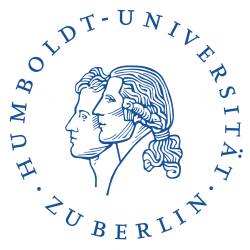- Back
- Location
- Berlin
Berlin, Germany - Date Posted
- 14 Jun 2025

- Type
- PhD Program
- Berlin
Berlin, Germany - 14 Jun 2025
PhD Position – Parasite-Host Interactions

NOTE: this position listing has expired and may no longer be relevant!
Position Description
Title: Lipid-mediated calcium homeostasis and lytic cycle of Toxoplasma gondii
Research Group: Parasite-Host Interactions
Address: Department of Molecular Parasitology, Institute of Biology, Faculty of Life Sciences, Humboldt University, Berlin, Germany
Supervisor: Dr. Nishith Gupta
Starting date: August 1, 2018 (or earliest possible data thereafter)
Project Description:
The major membrane phospholipid classes, described thus far, include phosphatidylcholine, phosphatidylethanolamine, phosphatidylinositol and phosphatidylserine (PtdSer). Our recent wok has demonstrated the natural occurrence and genetic origin of an exclusive and rather abundant phospholipid phosphatidylthreonine (PtdThr) in two widespread eukaryotic parasites Toxoplasma gondii (Arroyo-Olarte RD et al, PLoS Biology 2015) and Eimeria falciformis (Kong P et al, Cell Discovery – Nature 2018). PtdThr is in fact a natural homolog of otherwise-universal and usually essential lipid PtdSer, which is long known to regulate membrane integrity and calcium dynamics in mammalian cells. Targeted gene disruption of phosphatidylthreonine synthase impairs the lytic cycle and virulence of the parasite due to unforeseen attenuation of the gliding motility and egress. Using a calcium biosensor, we observed that loss of PtdThr causes a dysregulation of cytosolic calcium, which in turn translates into a defective egress from the mammalian host cells (Kuchipudi A et al, Microbial Cell 2016). For additional reading, please refer to the citations.
In this project, we will examine the mechanistic regulation of calcium homeostasis by PtdThr and PtdSer using an approach spanning across the disciplines of biochemistry, genetic engineering, cell biology and synthetic chemistry. Following major experimentations will be performed:
1. Determine calcium levels using gene-encoded sensors in the mutant lacking PtdThr
2. Identify lipid-binding proteins involved in calcium signaling by click-chemistry method
3. Image subcellular distribution of PtdThr/PtdSer in tachyzoites using lipid biosensors
4. Examine the importance of conserved PtdThr species by chemical complementation
5. Engineer selected knockout mutants and phenotype them for growth defects
Upon successful completion, we shall reveal lipid-mediated regulation and mediators of calcium dynamics during asexual reproduction of T. gondii, which can eventually be exploited to inhibit the parasite growth. Besides typical laboratory methods (PCR, western blot etc.), the student will have an outstanding opportunity to get a broad training in state-of-the-art methods, which include, but not limited to, CRISPR/Cas9 and Cre-mediated gene manipulation, high-resolution imaging, FRET biosensors, mass spectrometry and molecular phenotyping. Not least, because the project is embedded in a graduate program, the student will have direct access to a wide range of soft skill courses, workshops, symposia and other events.


